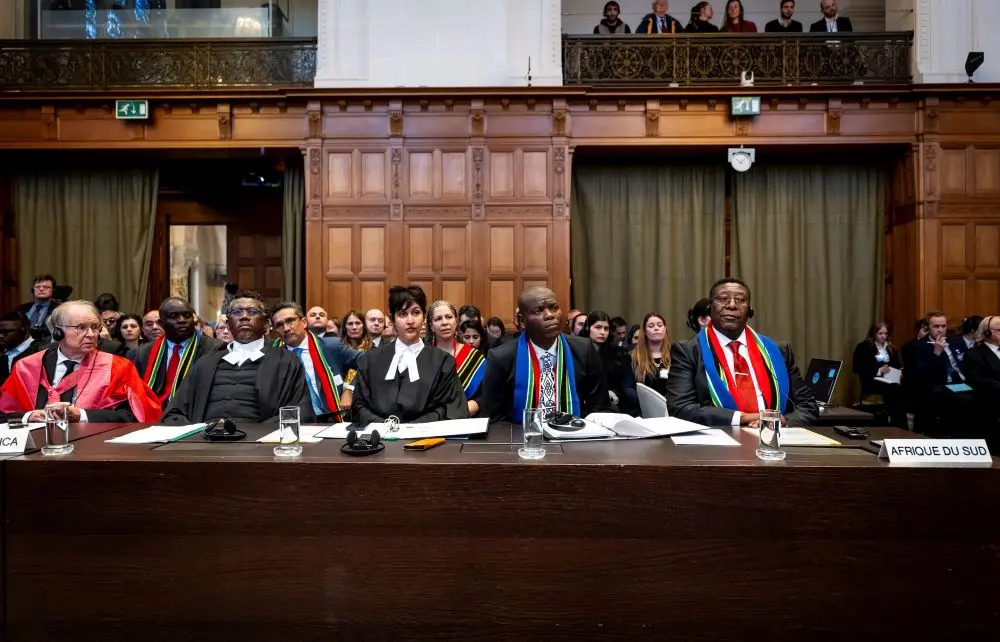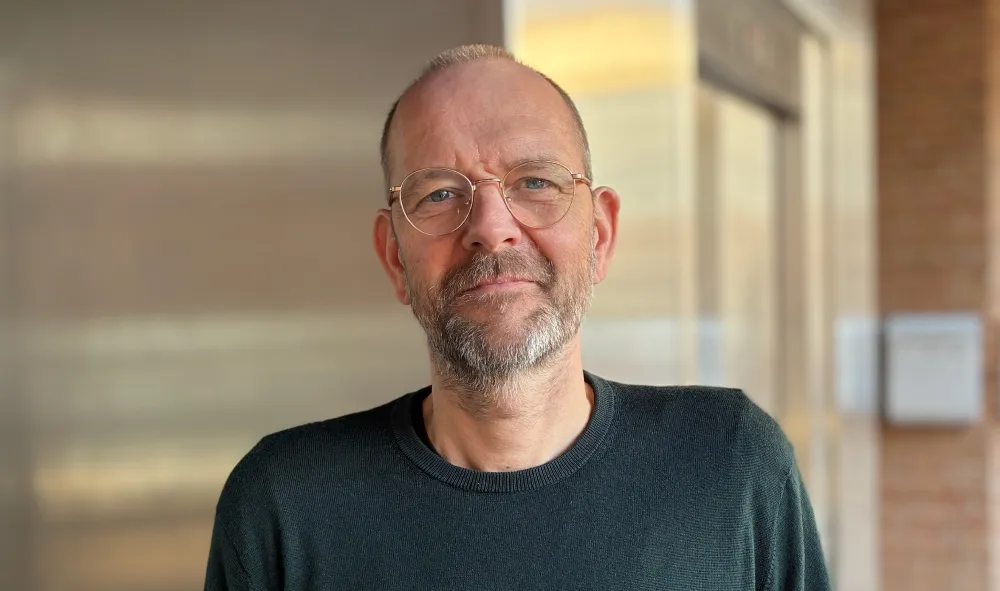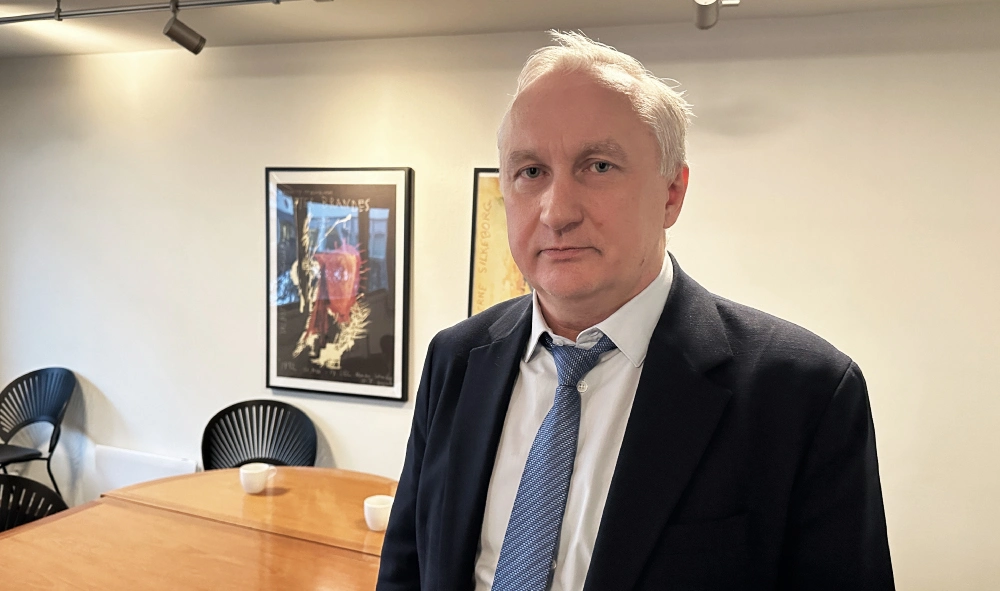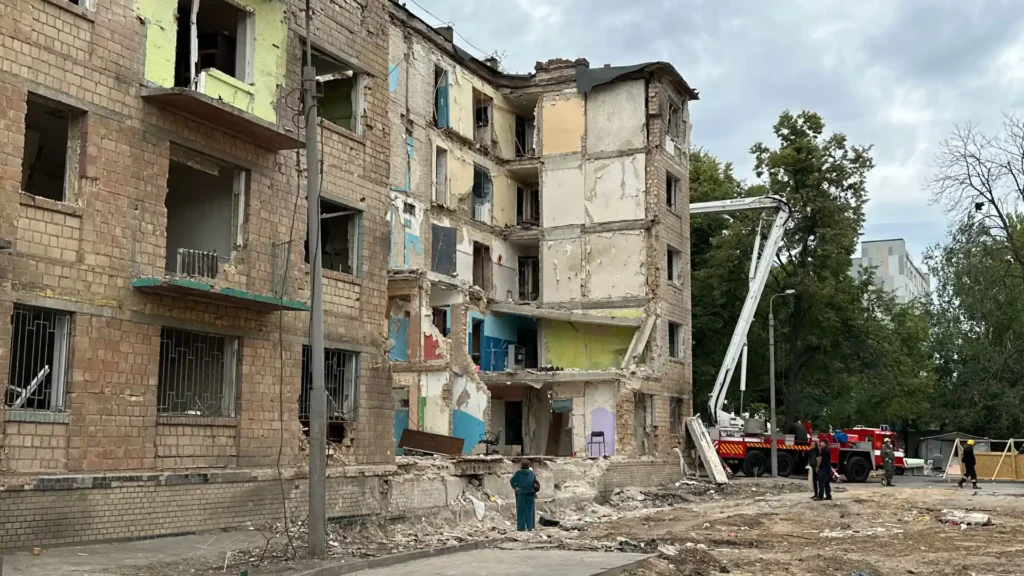“Confirmation; you have been granted a seat 11 and 12 January”, was the short email from the International Court of Justice (ICJ) that appeared in my inbox a few days before the first hearing in the case of South Africa against Israel regarding genocide being committed against the Palestinians in Gaza. One of the 15 seats on the public balcony at the top of the grand courtroom in the Peace Palace went to DIGNITY.
First the facts: At the end of December, South Africa sued Israel for breach of the UN Convention on the Prevention and Punishment of the Crime of Genocide because of the atrocities in Gaza, which – according to South Africa – reflect an Israeli intention to destroy, in part, the Palestinians in Gaza. The seriousness of the case is obvious and, in my opinion, it is the most serious accusation against the state of Israel ever. At DIGNITY, we are particularly interested in the case because torture could be used as evidence in the case and because one of our partners in Palestine is collecting evidence of possible war crimes in Gaza.
But before discussing the hearings, I want to take you back in time.
I lived in Gaza for three years from 2000-2003, working in the legal department of the United Nations Relief and Works Agency for Palestinian Refugees (UNRWA). During that time, I learned that in the Israeli/Palestinian conflict there are no permanent “red lines”, or to express it differently: There is no lower limit to the degradation of human rights.
One example is the ICJ’s 2004 advisory opinion related to Israel’s construction of the wall in the West Bank. The case resulted in a clear non-binding opinion from the UN’s highest court. Yet the opinion had no consequences and did not change the conditions in the Israeli-occupied West Bank. The wall remained and the affected Palestinians did not get their properties back.
Therefore, I and many others were attentively listening to the intervention by South Africa and the defense by Israel in The Hague.
The trial took place in the impressive Peace Palace, inaugurated in 1913: a testament to the importance of international law for world order and the high ideals of “peace through law”, as the Austrian legal philosopher Hans Kelsen expressed it in the aftermath of World War II.
The courtroom itself is a reminiscent of a church. High ceilings. Stained glass windows and the calmness of a temple: no clocks, full concentration and attention. Also, in the courtroom several Palestinians were present, including the head of our Palestinian partner, Palestinian Center for Human Rights, Raji Sourani.
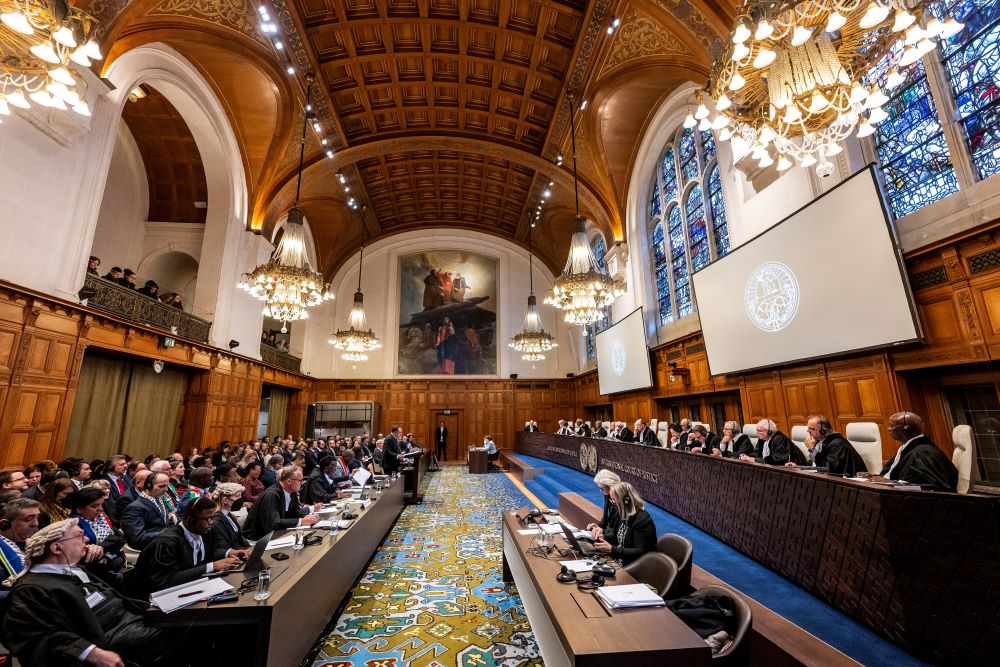
The tone was set by the South African ambassador, who spoke of an “ongoing Nakba”, the high casualties (over 25,000 Palestinians killed at the time of writing) of which about 70 percent are women and children, and a Gaza in ruins. Everything is destroyed, including Rimal, my old neighborhood in Gaza City, and 95 percent of the 2.2 million Palestinians are at risk of starvation. It was explained that they are currently at greater risk of dying from famine than from Israeli bombardment. The scale of the atrocities remains difficult to comprehend.
Afterwards, the lawyers on the South African team, including 87-year-old John Dugard, listed the legal arguments for genocide. The task was not to lift the burden of proof for genocide itself, but to convince the judges that the charges are reasonable, and that Israel must do more to prevent genocide here and now.
The next day, we heard Israel’s defense. There were many references to Hamas and that the Hamas attack on October 7th would constitute the only genocidal acts committed in this case. I understand the national trauma that has affected many Israelis since October 7th and the common goal that such a brutal attack on Israel should never happen again.
The question is: What will happen next?
It is expected that the ICJ will issue an order on interim measures shortly, whereas the final judgment will probably have to wait several years. The interim measures could include, for example, orders to suspend all hostilities in Gaza, to guarantee access for emergency aid to Gaza and to ensure compliance with the Convention against Genocide.
If the verdict is in favor of South Africa and – Palestine – it will be the first ever binding international judgment on human rights against Israel.
Thus, the stakes are high, and many of the people I met and spoke to in The Hague believe that the conditions in Gaza are so grave that the term genocide should be used to describe the situation.
We will continue to follow the case closely

